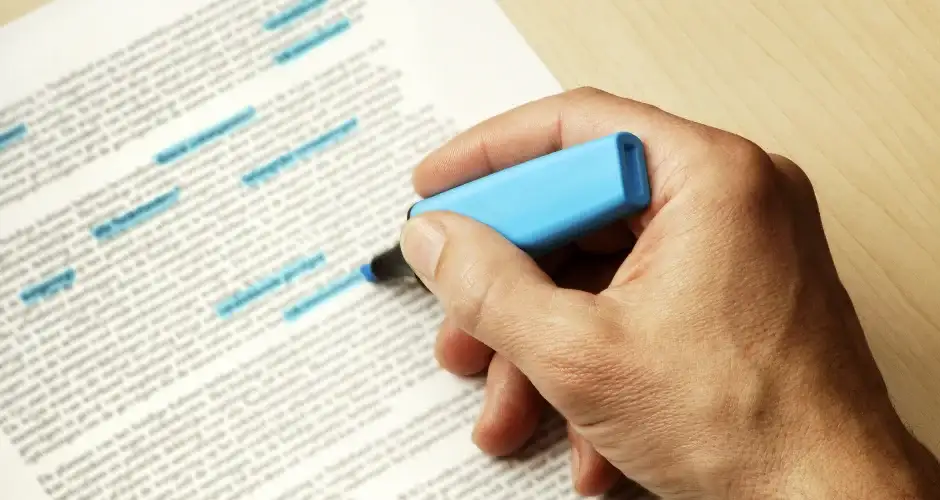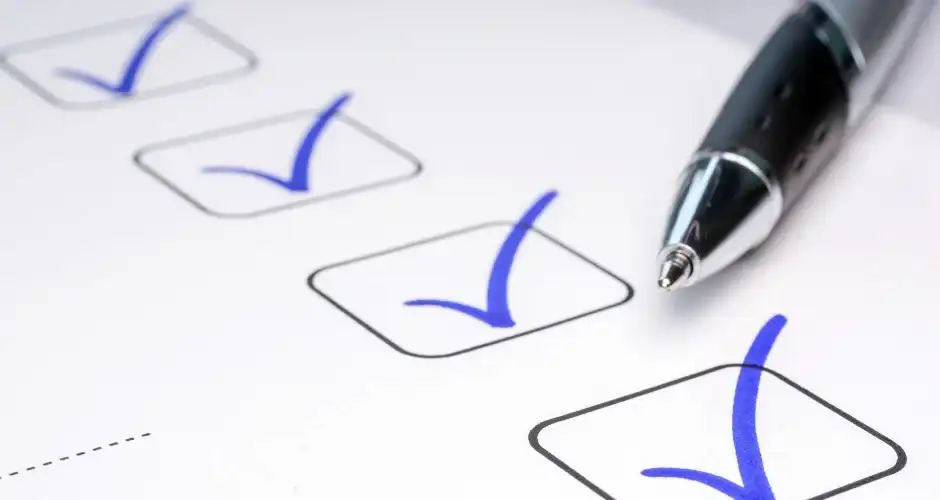GUEST POST
How To Ace Your GCSE Spanish Reading Exam

My students have always told me that the GCSE reading assessment is the easiest out of the four papers and I think this paper is the least revised.
That being said, here are some simple things you can do to help gain the most marks and ace those tricky questions designed to trip you up.
1. Use the Clues in Each Question

The reading paper has been written to include a lot of clues about how to answer the questions correctly
Before you start reading you should look at the task description and the type of questions you are expected to answer.
Check the layout of the task. Is there any picture or graph? These clues will help you ease into the reading task.
Read the text to get the gist. It can be easy to feel overwhelmed when approaching a text that is full of words you are unsure of. Don’t panic, you aren’t expected to know every single word and can still get a high mark on this exam if you use the words that you DO know to guess what the text is about.
2. Find the Question Words in Spanish

The majority of GCSE reading questions are based on these question words (who, what, when, where and why) will give you a head start in understanding questions that may appear on the reading paper. Train yourself to recognise these words in the questions after reading the Spanish text. Highlight or underline that information on the text itself.
Quién – Who ( Who did Marta go to the concert with?)
Qué – What (What does Marta say about her science teacher?)
Cuándo – When (When does Marta work at her father’s shop?)
Dónde – Where (Where will Marta go on holiday this summer?)
Por qué – Why (Why can’t Marta go to her friend’s party?)
Cómo – How (How did Marta travel to school yesterday?)
3. Spot Negative Words and Other Word “Traps”

Negative words, such as no, neither or never, can completely change the meaning of a sentence. Knowing these words will help improve your understanding of the extracts in the exams. Examples of negative words are:
No – No/Not
Ni – Neither/Nor
Nunca - Never
Nada - Nothing
Nadie - Nobody
Ningún - None
Sin - Without
Tampoco – Neither
Connecting words can also change the message of a sentence and examiners use these to “trap” the reader. Not very nice, but it is best to be prepared.
Pero – but
Ex: Marta likes horror films but prefers comedies (what are Marta’s favourite type of film?)
Sin embargo – however
Ex: ( Marta likes where she lives, however she would like to live abroad in the future)
Aunque – even though
Ex: (Even though Marta hates sports, she played tennis with her dad last Saturday)
No obstante - nevertheless
4. Spot Set Phrases and Structures

Some phrases in Spanish do not directly translate into English. Thinking of the words in English and then translating those words to another language (and vice versa) is a bit of a bad habit.
Two phrases that carry the same meaning can we phrased very differently - so it’s good to watch some Spanish TV with subtitles to pick up new phrases and think like a Spaniard!
Every language has examples of these phrases and the more you repeat them in speech, writing or listening, they will become second nature like a native. It is worth learning the common ones to save you from getting confused by them in the exam. Here are some common GCSE examples:
Me llevo bien con – I get on well with
Hoy en día - Nowadays
Estar a punto de – To be about to
Desde hace - Since
Hace (dos semanas) – (Two weeks) ago
Lo más (importante) / lo menos (importante) – The most (important) / the least (important)
5. Underline or Highlight Relevant Parts Of Each Question

If you don’t know where to start with a question - take a deep breath to recollect your thoughts and start by highlighting the relevant areas of a question (or text).
This will help you find the information in the text. If the question is a “when” question, go to the text and highlight or underline any references to days, months or time of day. Doing this will help you use the clues to answer correctly.
6. Answer All the Questions.

If there are some that you aren’t sure about, have a guess, and don’t leave anything unanswered.
A few marks here and there can be the difference of a whole grade. You should never leave an exam early. Do your best to re-read some answers or re-read the texts to check if you have answered the questions accurately.
Remember that many GCSE Spanish reading questions are True or False or multiple choice, so you have a high probability of getting a mark even if you didn’t fully understand the text.
7. Answer in the Right Language

This may seem obvious - but in the stressful environment of an exam - it’s more common than you think.
Don’t lose any marks by making sure that if the question is in English, always respond in English. Equally, if the question is in Spanish, always respond in Spanish!
What To Do Before Your Exams:
Other than contacting a one-to-one tutor like me to help guide you through your weak areas, there is a lot more you can do outside of school time to ensure you will ace those exams in the summer.
1. Boost Your Vocabulary

The more vocabulary you know the better for you Spanish reading exam, so how can you achieve this?
A good strategy is dividing words up into “families” or groups.
Choose a topic such as holidays (vacaciones) and write down as many Spanish words as you can relating to this (e.g. playa, calor, viajar, verano). By making associations between words you will be able to remember more.
A good resource for learning and practising your vocabulary online is Quizlet.com. A lot of your GCSE Spanish vocabulary is already on this site and ready for you to practice. Just search for a topic list or a specific unit from your textbook.
As mentioned before, watching some Spanish TV shows on Netflix with subtitles on is a great way to learn casual or formal phrases you may never hear in school. Turn the subtitles on and look up anything you hear someone say that seems interesting. A lot of these will not directly translate from English phrases but may be a common saying to a native speaker.
2. Know Your Tenses

This almost goes without saying but revising your verb tenses is absolutely key to getting a good GCSE grade. It’s probably the trickiest part of learning the language so be patient and practice with a lot of regular repetition to help you remember them more naturally.
Feeling overwhelmed by it? Try revising a little but often. Mix up your revision with some online games to help you practice. The Conjugemos website is a great place to start.
3. Do Some Past Papers
Get some past papers and use these to revise. It will really help you to be familiar with the layout and the potential questions that may be asked.
You can download past papers from exam board websites to practice. Revision World also has a large collection of GCSE Spanish papers from all the current exam boards.
Try to practice with the same time restrictions so you can get used to completing the paper in the allocated time. Make sure you read each question carefully and answer all sections.
4. Look After Yourself

Revising can feel stressful and overwhelming, especially when you feel your are running out of time or struggling to organise your revision sessions. While time with a tutor can help prioritise your revision topics better, there are tried and tested ways to help revise if you can stick to them.
Overloading on revision with no rest can be counterproductive and lead to worse results - so it’s much better to be organised and start as early as you can to cover everything in a more relaxed mindset. Check out this blog by Sherpa to learn about some stress-reducing revision techniques.
During the exam don’t worry if you can’t understand a text word for word. Very few students can do this at GCSE level. Instead, focus on what you do know and make judgements from the context. You will be amazed at how high your grade can be with this strategy.
Students

Ruth G
Tutor
Excellent support for GCSE, A-level Spanish students and KS3 learners
Looking for a tutor?
Sherpa has hundreds of qualified and experienced UK tutors who are ready to help you achieve your goals. Search through our tutors and arrange a free 20 minute introduction through our industry-leading online classroom.
Find a TutorSimilar Articles
Enhancing Business Studies Education
Dr Roongta has a doctorate in business studies. He is passionate about the need for Case Methods, Interactivity, and Conceptual Clarity to enhance Business Studies education.

Shrawankumar R
9th November



